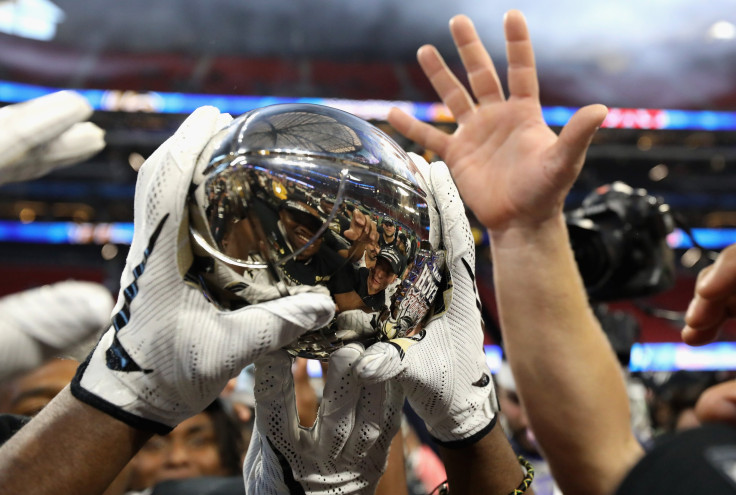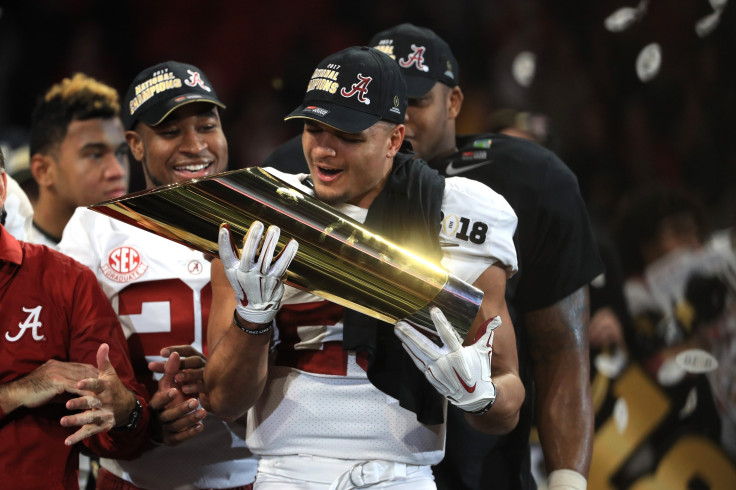NCAA Reportedly Cites Prison Labor In Defense Of Not Paying Athletes

As the eternal debate over whether or not college athletes deserve to be paid continues, new legal documents obtained by The Intercept may not help the NCAA’s case in the court of public opinion. Reporter Shaun King found an instance of the NCAA justifying its current labor structure by citing the 13th Amendment.
Specifically, the NCAA cited Vanskike v. Peters, a 1992 case in which an Illinois prisoner argued he deserved minimum wage for prison labor. The court ruled against him, citing the 13th Amendment’s stipulation that slavery was illegal “except as a punishment for crime.”
The NCAA pointed to Vanskike v. Peters in response to a lawsuit filed by former college athlete Lawrence “Poppy” Livers claiming student athletes deserve at least minimum wage for their labor. Livers’s lawyers called it “deeply offensive” and “contemptible” to compare student athletes playing for free and prison labor, which opponents consider a legal form of slavery.
Those who advocate for college athletes to get paid point to the massive profits their efforts generate for universities and the huge salaries of top head coaches. The idea is that the players doing the lion’s share of the work get no money in return, and they may not have time for much work or schooling in their busy schedules.
Several current NFL players who played college football took to Twitter to criticize the NCAA’s decision to cite Vanskike v. Peters in defense of unpaid athletes.
Wow. That’s low, even for you @NCAA https://t.co/pbjiS5Vwch
— David Bakhtiari (@DBak69) February 22, 2018
Disgusting ! https://t.co/EIJ5BFiY1K
— Xavier Grimble (@justfollowZae23) February 22, 2018
Exactly why WE hate the NCAA! Yal almost as bad as Trump. Well, maybe not that bad. But then again... https://t.co/bKsMoOPsjv
— Su’a Kristopher Cravens (@iammsuzy) February 22, 2018

© Copyright IBTimes 2024. All rights reserved.





















